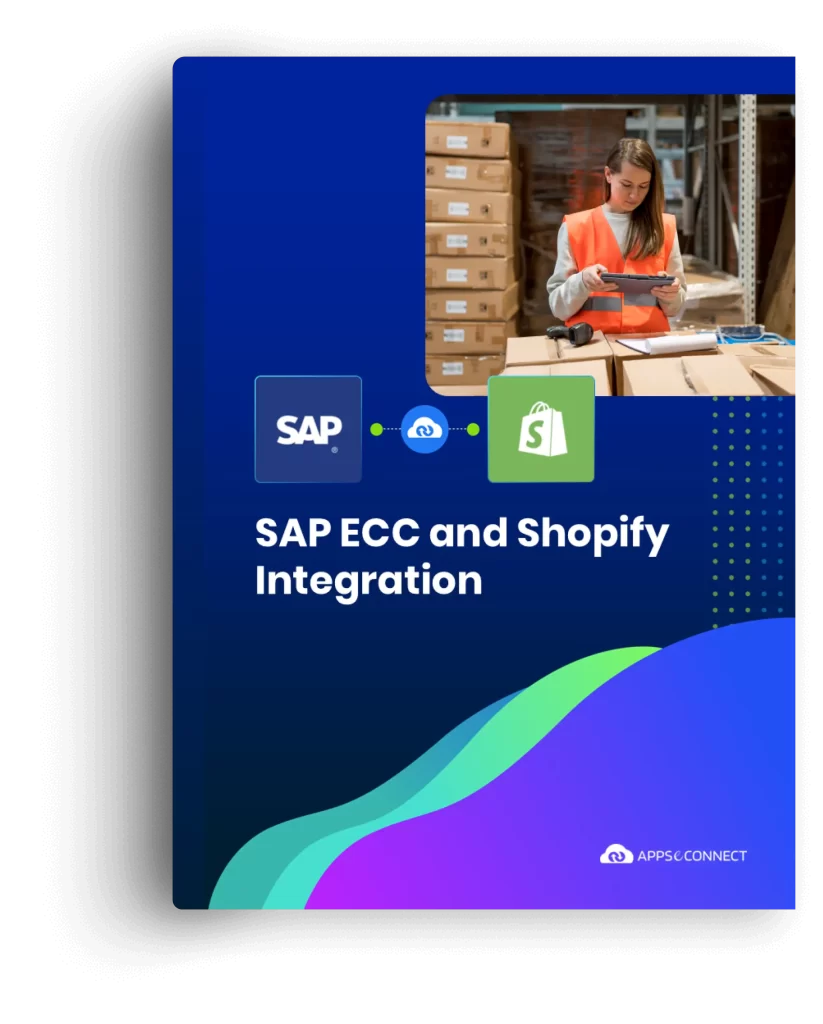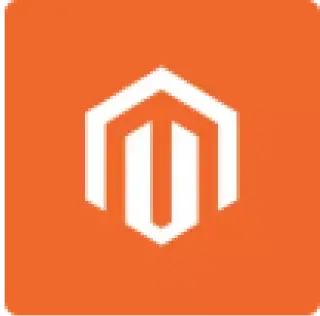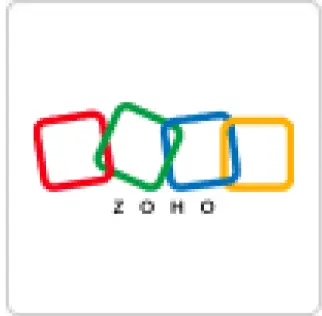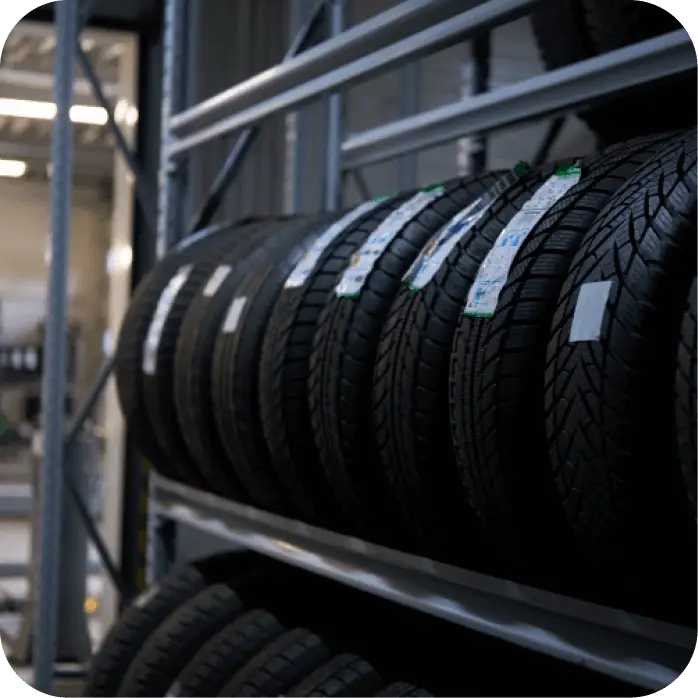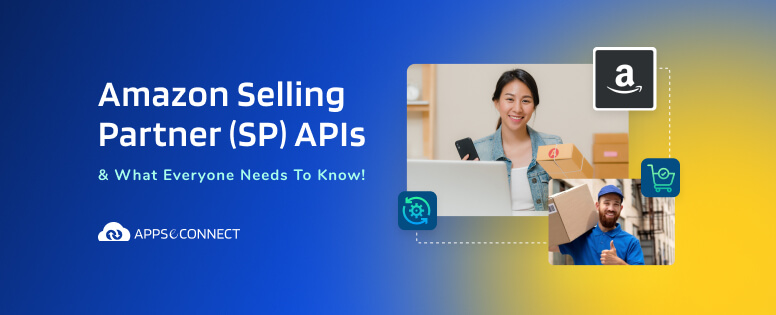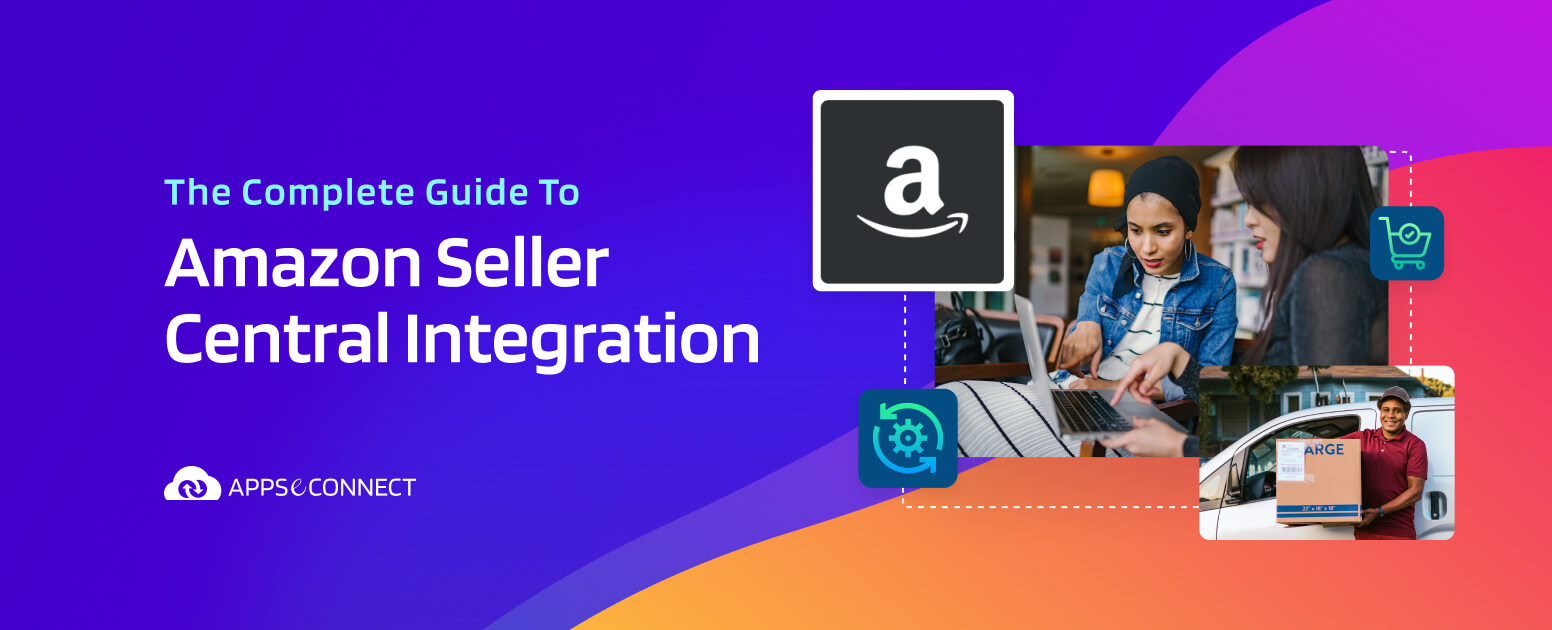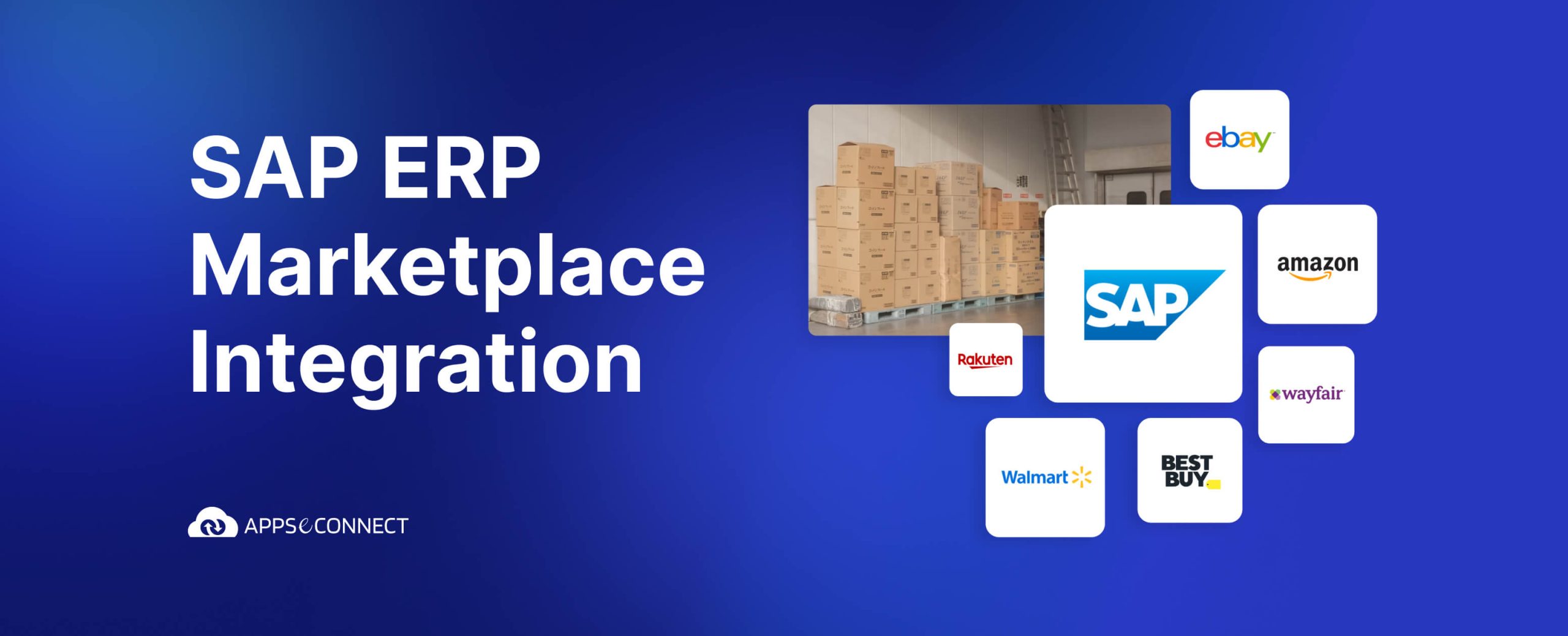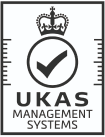SAP ECC and Shopify Integration
SAP ECC and Shopify integrations made easy with APPSeCONNECT’s modern iPaaS. The Shopify SAP ECC connector can automate critical business processes and streamline your organizational data efficiently.
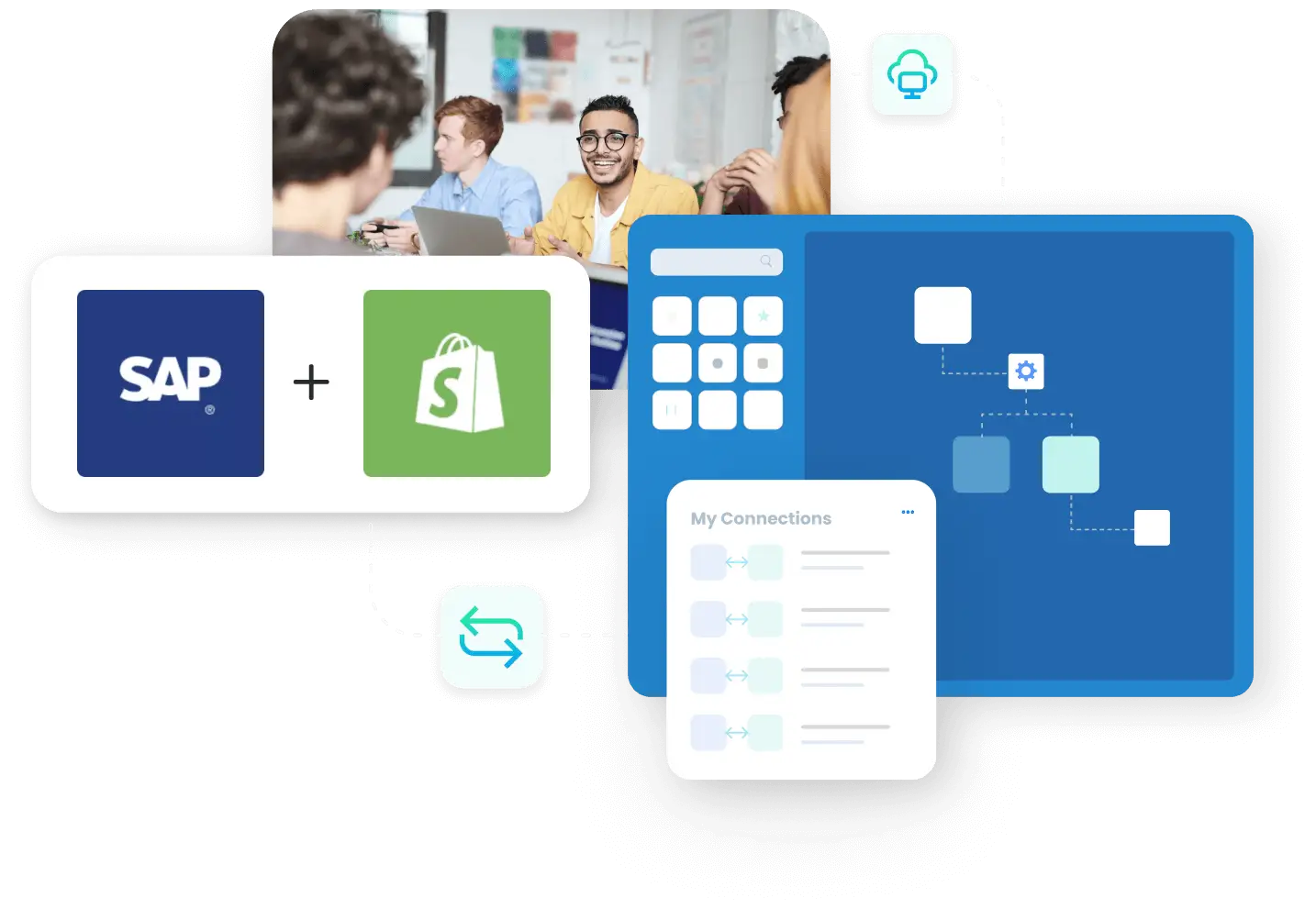
Modern IPAAS PLATFORM
Shopify SAP ECC Integration and Business Process Automation
SAP All-in-One and Shopify Integration offers comprehensive business process automation for your entire sales cycle, ensuring seamless data integration between SAP and Shopify. This Shopify SAP integration automates the synchronization of Shopify orders with your SAP ECC system, allowing data created online to be automatically transferred to your backend SAP ERP system, enabling informed decision-making.
Our pre-configured Shopify SAP connector is readily available, providing automation for your business processes. We offer end-to-end SAP integration with Shopify, ensuring timely data transfer to the backend SAP ERP ECC system. This Shopify SAP ERP integration supports real-time pricing scenarios, where prices are dynamically calculated in SAP ECC and displayed to online users on Shopify.
Additionally, we synchronize your customized business processes from various Shopify extensions, such as SparkLayer, making the data available in your backend SAP systems. Our solution ensures seamless SAP ECC integration with Shopify, enhancing operational efficiency across your sales and order management workflows.


Endpoints for Shopify SAP ECC Integration

Endpoints for SAP ECC Shopify Integration
Standard Features Covered in Our SAP ECC and Shopify Integration Template
Customer
Existing customers can be sent from SAP to Shopify. Customer name, address, email, and phone number can be sync to Shopify. The customer sync touch point is in Real-time mode i.e. when the customers are triggered within SAP then the customer will get created in Shopify.
Order
Orders are synced from Shopify to SAP. Since the mode of this touchpoint is an Auto mode, they are transmitted to SAP from Shopify in a periodic manner. APPSeCONNECT decides the following aspects before putting it in SAP.
- Determining B2B / B2C order
- Determining the partner functions (Ship to / Sold to / Bill too)
- Payment method (Via Cash on delivery / Credit Card / PayPal etc.).
- Credit card/authorization number if there.
- Any discounts determined in Shopify which need to be passed to SAP
- Shopify order number in the Purchase Order field of SAP order.
Product
Existing products can be sent from SAP to Shopify. We can sync the product details like name, SKU, quantity, and price etc. to Shopify. The product sync touch point is in Real-time mode i.e. when the products are triggered by SAP then the products will get created in Shopify.
Invoice
Billing Document (invoice ) can be sent from SAP to Shopify. As soon as an invoice is posted to accounting within SAP, the invoice gets generated within Shopify. Payment capture can also be triggered by Shopify on receiving the invoice information from SAP if it is a credit card order.
Shipment
Delivery Document (shipment) can be sent from SAP to Shopify. Whenever the Post Good Issue is created in SAP, it will be automatically sent to Shopify. A delivery document contains shipment tracking number so that users can instantly get the updated information.
Popular SAP ECC Integrations
Connect SAP ECC with other business applications
Popular Shopify Integrations
Connect Shopify with other business applications
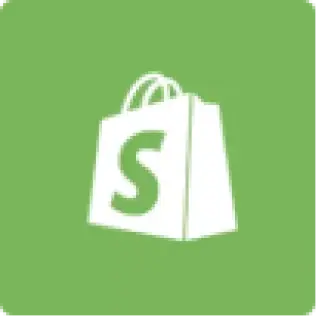
+

Shopify and SAP Business One

+
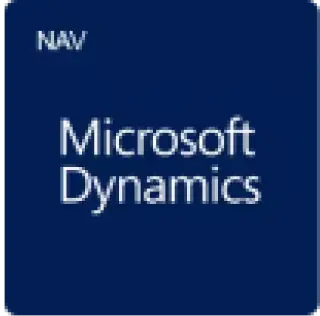
Shopify and Dynamics NAV

+

Shopify and NetSuite

+

Shopify and Dynamics CRM
Looking for a Specific Integration?
View All Apps

Connect SAP ECC and Shopify
Get Started with APPSeCONNECT Today!
Our SAP ECC connector provides both IDoc (Intermediate Document)-based data transfer and BAPI (Business API)-based integration. Typically, we prefer using IDoc to sync data from SAP ECC to other applications, while BAPI is used for syncing data to SAP ECC. If you’ve built a custom BAPI, our Shopify SAP connector can connect to it, ensuring your data is properly synchronized across other apps, including Shopify.
On the Shopify side, Shopify uses GraphQL to communicate. While we initially supported REST APIs (which Shopify deprecated), we now provide GraphQL API alternatives, ensuring seamless Shopify SAP integration using the modern communication protocols.
Yes, Shopify integration allows for real-time synchronization using Webhook-based integration. Shopify webhooks can be configured with a webhook URL, mapped as a callback in Shopify, and automatically push data to your SAP ECC system. When data is created in Shopify, it is immediately transferred to the SAP ECC system, ensuring real-time pricing and inventory updates.
Additionally, for SAP ECC integration, your process can trigger an IDoc, sending data to our platform as a webhook, allowing for immediate data sync. Alternatively, you can schedule your data sync at regular intervals, based on your needs.
Yes, we handle custom BAPI integrations for SAP systems, including SAP B1. If you’ve exposed an API from your SAP system, APPSeCONNECT can call it and synchronize the data with Shopify based on your defined schedule. If you don’t have a custom BAPI, our support team can help you create one within SAP B1 and integrate it seamlessly with Shopify.
Yes, Shopify is deprecating its REST APIs, and our platform supports integration with SAP B1 through Shopify GraphQL API. This modern API ensures that your Shopify SAP integration remains up-to-date and
capable of handling all necessary eCommerce workflows, including real-time pricing and inventory updates.
Absolutely! APPSeCONNECT supports B2B integration on Shopify Plus by connecting Shopify with your SAP ERP system. Whether it’s B2B orders, company profiles, locations, or contact details, the relevant data is automatically synced to your backend ERP system. Our solution enables seamless Shopify SAP ECC integration, enhancing the management of B2B transactions.
Yes, APPSeCONNECT allows you to pull real-time pricing directly from your SAP system. Custom pricing logic, whether based on user credentials or other criteria, can be managed in SAP ECC, and our integration platform will dynamically fetch and display the correct price to logged-in Shopify users. This ensures that your Shopify SAP integration supports custom pricing scenarios for B2B users.
Yes, Shopify Bulk APIs can be used for inventory synchronization in Shopify SAP integration. Whether you’re sending product data one by one or in batches, APPSeCONNECT can handle both types of data transfers. Our integration packages support bulk syncing, ensuring that your Shopify integration with SAP ECC remains efficient even as your product catalogue grows.
It’s generally recommended to have a local server hosting your integration solution. If your SAP ECC system is hosted locally, you can install our agent within the same network, ensuring a direct connection to SAP ERP ECC. Alternatively, you can leverage our cloud hosting for SAP integration with Shopify by exposing Business APIs via a public URL, allowing our cloud servers to manage the integration.
APPSeCONNECT is flexible and allows customization of your data attributes. After installing our pre-built Shopify SAP integration package, you can modify default attributes like the shipment tracking number to user-defined fields, providing the flexibility to adapt your integration to your specific business needs.
Our intelligent integration system automatically retries data transfers in case of API throttling. When you integrate Shopify with SAP using GraphQL APIs, we ensure your sync continues smoothly, even if rate limits are reached. You can configure how often data syncs occur, and our system will automatically pause and resume as necessary to avoid exceeding Shopify API rate limits.
Companies automating their business through APPSeCONNECT














Customer Success Stories

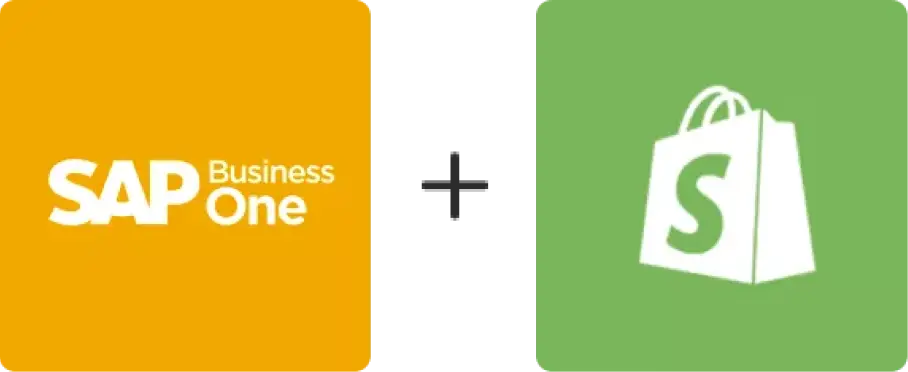
Proveedora PGP – Transforming Ecommerce Operations with APPSeCONNECT.

